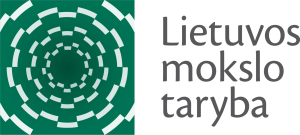Single-Mother Families: Social Policy Measures Implemented by Welfare States and the Experiences of Lithuanian Mothers in Emigration, S-PD-24-17

Project No S-PD-24-17
Project name: “Single-Mother Families: Social Policy Measures Implemented by Welfare States and the Experiences of Lithuanian Mothers in Emigration”
Project duration: 2024-01-15 – 2026-01-14
Internship supervisor: Doc. dr. Vida Česnuitytė
Trainee: dr. Greta Skubiejūtė
Summary: Research indicates that single mothers face a higher, albeit temporary, risk of emigration, and emigration presents additional challenges for them and their children. It can reduce contact with their child, create various socialization and learning challenges for the child, diminish the mother’s and child’s connections with the informal social network, among other effects (Skubiejūtė, 2021). Nevertheless, mothers continue to choose emigration, so it is important to examine the reasons and consequences of emigration. The aim of this study is to investigate the policy measures applied in different welfare states (England, Germany, and Norway) to support single mothers and their children. Additionally, the study aims to explore the experiences of single mothers living in these countries, delving into their family needs and how they are addressed in the migration countries and Lithuania. Employing a qualitative methodology, the research will analyze the reasons for mothers’ emigration, the experiences of raising children in a foreign country, including work-family balance possibilities, emotional well-being, experiences of stigma, child care and educational opportunities, received social and financial support, and motherhood practices. The study will also delve into mothers’ plans and opportunities to return to Lithuania, investigating what factors influence their decision to remain abroad and what conditions would encourage them to return to Lithuania.
The project is funded by the Lithuanian Research Council under the postdoctoral fellowship programme.